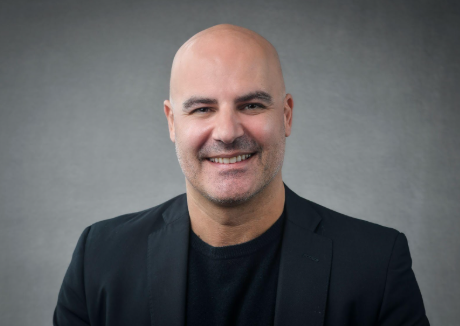
The Weight of Scale
Managing billions is not the same as managing millions. Scale changes everything. The systems must be tighter. The oversight must be sharper. Every small error has larger consequences.
When an advisor works with $17 billion in assets, they are not just handling numbers on a screen. They are protecting pensions, endowments, and family legacies. The responsibility extends far beyond returns. It is about security, stability, and stewardship.
A report from Willis Towers Watson showed that the top 300 pension funds control more than $23 trillion in assets globally. This concentration of capital highlights the stakes. A single decision can affect thousands of retirees or students. Scale magnifies impact.
Trust at the Core
Earning Confidence
No investor hands over billions without trust. Building that trust takes time, transparency, and results. It means showing clients not just what you recommend, but why.
One advisor recalled presenting a risk model to a foundation board. Instead of jumping into numbers, he started with the story of how similar portfolios performed in past downturns. The board saw that the strategy was not just theory but tested in real markets. That trust earned the mandate.
Sustaining Trust
Trust does not end after the first handshake. It must be reinforced constantly. Quarterly reviews, clear reporting, and quick responses to concerns are all part of the job.
Fiduciary duty requires putting the client’s interest first, every time. If conflicts appear, they must be disclosed. Transparency builds long-term relationships that can withstand market turbulence.
Fiduciary Responsibility
Acting in the Client’s Best Interest
Fiduciaries are legally and ethically bound to act in the best interests of their clients. This duty is higher than that of a standard advisor. It means every recommendation must be free of self-interest.
A study by CFA Institute found that 75% of institutional investors rank fiduciary responsibility as the most important factor in selecting consultants. Clients expect advisors to protect them, not profit off them.
Balancing Risk and Return
Fiduciary duty is not just about chasing returns. It is about balancing growth with protection. An endowment funding scholarships cannot risk losing capital in a downturn. A pension paying out benefits cannot afford a liquidity crunch.
The role of the fiduciary is to understand these needs deeply and design strategies that match them. That balance requires constant monitoring and adjustment.
Lessons in Managing Scale
Lesson 1: Systems Must Evolve
Handling $17 billion requires robust systems. Risk models, compliance checks, and reporting structures must all scale. What works for $50 million will not work at $5 billion.
Automation, detailed reporting, and independent audits become essential. Without them, errors multiply. With them, operations remain smooth even as assets grow.
Lesson 2: Communication Beats Complexity
Boards, trustees, and committees often come from diverse backgrounds. Some members understand finance deeply, others do not. Advisors must translate complex strategies into clear language.
One consultant remembered explaining derivatives to a university board by comparing them to insurance policies. “It’s like paying a small premium to protect against a big loss,” he explained. The board got it instantly. Communication won trust.
Lesson 3: Prepare for Crisis
Scale brings exposure to every kind of risk. Currency shifts, credit defaults, geopolitical events. Advisors must prepare for crises before they happen.
In 2008, institutions that had built stress tests and liquidity buffers survived better than those who had not. Preparation makes the difference between survival and collapse.
Actionable Recommendations
Build Strong Governance
Create investment committees with clear roles. Rotate members to prevent groupthink. Require independent audits. Strong governance prevents blind spots.
Document Policy Statements
Put everything in writing: allocation ranges, rebalancing rules, liquidity targets. Written policies keep decisions consistent even during volatile markets.
Prioritise Liquidity Management
Keep a portion of assets in liquid instruments. This ensures obligations can be met and allows opportunistic buying during downturns.
Review Risk Regularly
Run stress tests at least annually. Model extreme scenarios: interest rate spikes, market crashes, or inflation surges. Review results with boards and adjust strategy.
Build Transparency Into Reporting
Provide simple dashboards alongside detailed reports. Show both high-level results and granular detail. Transparency reinforces trust and reduces uncertainty.
The Human Side of Scale
Behind every dollar are real people. Retirees depending on pensions. Students relying on scholarships. Families depending on wealth transfer. Advisors managing billions must never forget this.
One fiduciary said he keeps a photo of his grandmother on his desk to remind him who he is ultimately serving. The assets may be numbers, but the outcomes affect lives.
Insights From the Field
Advisors like Youssef Zohny have highlighted that the key to managing billions lies in discipline and humility. He has spoken about how fiduciaries succeed by avoiding overconfidence and sticking to tested processes. It is not about predicting the future—it is about being ready for any future.
Looking Ahead
The role of large-scale advisors will only grow. Global assets continue to climb, and institutions will demand even higher levels of transparency and risk control. Environmental, social, and governance factors will play a bigger role in fiduciary decisions.
Advisors who can combine strong systems with strong trust will thrive. Those who cut corners will be left behind.
Final Thoughts
Advising on $17 billion is not just about numbers. It is about trust, responsibility, and discipline at scale says Youssef Zohny. The lessons are clear: build strong systems, communicate clearly, prepare for crisis, and always act in the client’s best interest.
For fiduciaries, success is not measured only by returns. It is measured by the confidence of those they serve and the stability they provide. At scale, that responsibility is both heavier and more important than ever.

